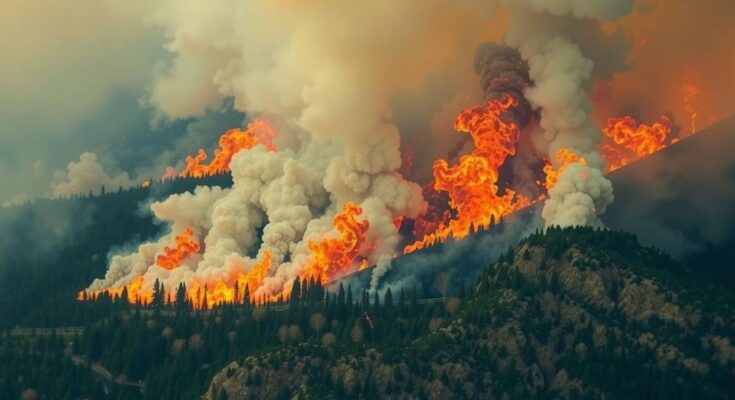Wildfire smoke, exacerbated by climate change, accounts for an estimated 12,000 deaths annually, with significant increases noted in areas like South America, Australia, and Europe. Research shows deaths from wildfire smoke increased dramatically from previous decades. Vulnerable populations are at heightened risk due to exposure to harmful pollutants like PM2.5. Emission reduction and better fire management practices are essential to mitigate these impacts.
Recent research highlights the alarming increase in health risks associated with smoke pollution from wildfires, attributing approximately 12,000 deaths annually to climate change. As global warming creates increasingly severe and volatile conditions for wildfires, the resultant smoke, laden with hazardous pollutants, poses significant health threats to populations across the globe. Between the decades, the number of deaths attributed to wildfire smoke related to climate change escalated dramatically, rising from merely 669 in the 2000s to over 12,500 in the 2010s. The overall toll from wildfire-related pollution surged from 46,401 in the 1960s to nearly 99,000 by 2010, with climate change directly accountable for 12,000 of those fatalities. Countries in South America, Australia, and Europe are noted to have suffered the most significant increases in deaths linked to changing climate patterns, particularly as rising temperatures in boreal forests coincide with declining humidity levels. According to Chae Yeon Park, lead author and researcher at the Japanese National Institute of Advanced Industrial Science and Technology, this trend illustrates a growing public health threat posed by climate change, particularly as smoke infiltrates densely populated urban areas. Exposure to particulate matter (PM2.5) generated from wildfire smoke is linked to serious health conditions, especially for vulnerable groups including the elderly, children, and those with pre-existing conditions. The growing prevalence of wildfires, now contributing to a quarter of Americans’ exposure to PM2.5, underscores the urgent need for robust emission reduction strategies and improved fire management practices to mitigate the impact of wildfires on health, ecosystems, and economies. Research findings were published in the journal “Nature Climate Change,” showcasing the critical connection between climate change and public health.
Wildfires have become an increasingly common phenomenon due to climate change, which aggravates conditions conducive to their ignition and spread. The changing climate has led to hotter and drier environments that exacerbate wildfires and the smoke they produce. Smoke pollution from these wildfires has emerged as a serious public health concern, with the ability to affect populations far removed from the fire’s physical vicinity. This issue has been underscored by current research findings that quantify the health impact of wildfire smoke, linking thousands of deaths directly to climate change.
The evidence presented illustrates a troubling upward trend in deaths associated with smoke pollution from wildfires, underlining the urgent need for proactive measures against climate change and its associated health threats. Researchers urge health officials and policymakers to prioritize the reduction of emissions and enhance strategies for managing wildfires to protect public health and the environment.
Original Source: www.independent.co.uk




